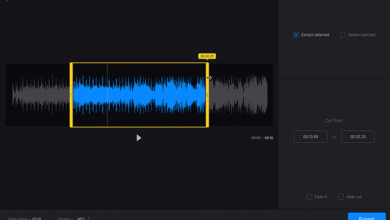
Mother hunting is a term that has garnered interest across various contexts, often associated with deep-rooted emotional, social, and cultural connotations. This term’s origin is complex, drawing from diverse historical, psychological, and sociological narratives. The phrase “mother hunting” can relate to themes of searching for a maternal figure, yearning for a nurturing presence, or even exploring one’s lineage.
Understanding the origins of “mother hunting” requires delving into human relationships and psychology. From literature and mythology to modern-day social structures, mother hunting has often been depicted as a universal quest. Many cultures emphasize the mother figure as a symbol of security and compassion. Thus, mother hunting reflects an individual’s journey towards finding or reconnecting with that maternal presence, whether literally or metaphorically.
Psychological Perspectives on Mother Hunting
The concept of mother hunting has significant psychological implications, particularly concerning attachment theory and the need for nurturing relationships. Psychologists explain mother hunting as a response to unmet needs in childhood, often resulting in a longing for maternal affection. This desire for connection can extend into adulthood, influencing relationships, self-esteem, and emotional well-being.
Attachment theory, proposed by John Bowlby, highlights the importance of early bonds between children and caregivers. When these bonds are absent or fractured, individuals may experience a lifelong search for maternal comfort. In this context, mother hunting becomes a psychological journey toward resolving unmet attachment needs. Therapists often encounter this phenomenon in clients who seek understanding, closure, or a sense of identity tied to their maternal relationships.
Mother Hunting in Literature and Popular Culture
hentai20 has been a recurrent theme in literature, cinema, and popular culture, representing the innate human need for a nurturing presence. In literature, characters often embark on quests to find their biological mothers or reconnect with motherly figures, symbolizing a deeper emotional journey. This archetype reflects the universal appeal of seeking love, security, and identity.
Films and books that address mother hunting often depict protagonists who struggle with identity crises or feelings of abandonment. This theme resonates with audiences, as it mirrors real-life emotions and the desire to find familial connections. The portrayal of mother hunting in popular culture has reinforced the emotional impact of this search, emphasizing the complex interplay between personal identity and maternal relationships.
The Cultural Significance of Mother Hunting Across Societies
Different societies view mother hunting through various cultural lenses, which reflect societal norms, values, and family structures. For example, in some cultures, the mother-child bond is considered sacred and lifelong, making mother hunting a revered journey toward familial reconnection. In others, family dynamics may be less emphasized, leading individuals to explore mother hunting as part of a personal journey.
Cultural attitudes towards motherhood and family bonds shape the perception of mother hunting. For instance, societies that place high value on lineage and ancestry may see mother hunting as a way of honoring heritage. Meanwhile, cultures with more fluid family structures may regard it as a form of self-discovery. These diverse cultural interpretations add layers to the significance of mother hunting in the human experience.
Mother Hunting and Family Dynamics: The Role of Relationships
Family dynamics play a crucial role in mother hunting, as the nature of familial bonds often dictates the need for such a search. Individuals from disrupted families or those with strained relationships with their mothers may feel a stronger urge to embark on a mother-hunting journey. The absence of a maternal figure or a distant relationship can create emotional voids, prompting a search for connection.
In families where maternal roles were absent or limited, mother hunting becomes a quest to fill that void. The search might not always be for a biological mother but could include finding a mentor, friend, or partner who embodies the qualities of a nurturing figure. Family structures and the quality of maternal relationships thus greatly influence the need and drive for mother hunting.
The Emotional Impact of Mother Hunting
Mother hunting can have a profound emotional impact on individuals, especially when the journey involves reconciling with past trauma or loss. The search often stirs a mix of emotions, ranging from hope and anticipation to sadness and frustration. For many, mother hunting is not merely about locating a person but about confronting unresolved feelings and forging a path toward emotional healing.
The emotional toll of mother hunting may vary depending on the individual’s background and expectations. For some, the journey brings closure and peace, while for others, it may reopen old wounds. Emotional resilience and support systems are critical for navigating the ups and downs of this search. Professional guidance can also help individuals process these emotions effectively.
Mother Hunting as a Path to Self-Discovery
For many, mother hunting is not only about finding a maternal figure but also a journey of self-discovery. This process encourages individuals to reflect on their identities, values, and life goals. The quest for a motherly presence can become symbolic, representing the search for a part of oneself that feels missing or incomplete.
Through mother hunting, individuals may uncover insights about their upbringing, heritage, and personality traits. Self-discovery becomes an integral part of this journey, as individuals examine how maternal relationships—or their absence—have influenced their lives. By understanding this connection, they can develop a deeper sense of self and build stronger personal identities.
Mother Hunting in the Context of Adoption
Mother hunting holds particular significance in the context of adoption, where adoptees may experience a strong desire to connect with their biological mothers. For adoptees, mother hunting can be a means to understand their origins, seek answers to lingering questions, and find a sense of belonging. This journey is often delicate and requires sensitivity from all parties involved.
Adoption adds complexity to mother hunting, as the search may involve navigating complex legal, ethical, and emotional landscapes. Many adoptees seek a relationship with their birth mothers as a way to complete their identity puzzle. However, not all adoptees choose to pursue this journey, as individual experiences and emotional readiness vary. In cases where adoptees do embark on mother hunting, the process can be transformative.
Mother Hunting and Modern Technology: How Digital Tools Are Changing the Search
Modern technology has revolutionized mother hunting, making it easier for individuals to connect with long-lost family members. Social media platforms, genetic testing, and online genealogy resources have empowered people to trace their roots and find maternal connections that were once challenging to locate. This digital transformation has opened new pathways for mother hunting.
DNA testing services, for example, provide detailed insights into ancestry, helping individuals locate biological relatives. Social media platforms allow for direct communication and community support, making mother hunting a more accessible and collaborative endeavor. Although technology has simplified the search, it has also introduced new challenges related to privacy and emotional complexities in mother hunting.
Conclusion
Mother hunting is a deeply personal journey that reflects the universal desire for connection, identity, and closure. Whether the search is literal or metaphorical, it represents the innate human need to bond with maternal figures and understand one’s origins. For many, mother hunting is about reconciling with the past, finding closure, and embracing a fuller sense of self.
The journey of mother hunting is unique to each individual, shaped by personal experiences, cultural backgrounds, and emotional resilience. It is a process filled with hope, challenges, and discoveries. By exploring this journey with empathy and understanding, individuals can navigate mother hunting’s complexities and find peace in their pursuit.
FAQs
Q1: What does mother hunting mean?
A: Mother hunting refers to the search for a maternal figure, often to address a need for emotional connection, closure, or self-discovery.
Q2: Why do people engage in mother hunting?
A: People may engage in mother hunting to resolve unmet needs, reconnect with a maternal figure, or explore their identity and heritage.
Q3: How is mother hunting depicted in popular culture?
A: Mother hunting is depicted in literature, films, and media as a quest for familial bonds and self-understanding, reflecting universal human desires.
Q4: Can technology help in mother hunting?
A: Yes, technology such as DNA testing and social media platforms has made mother hunting more accessible, helping individuals locate maternal connections.
Q5: Is mother hunting emotionally challenging?
A: Yes, mother hunting can be emotionally challenging, as it often involves confronting past trauma, loss, and deeply rooted personal issues.





